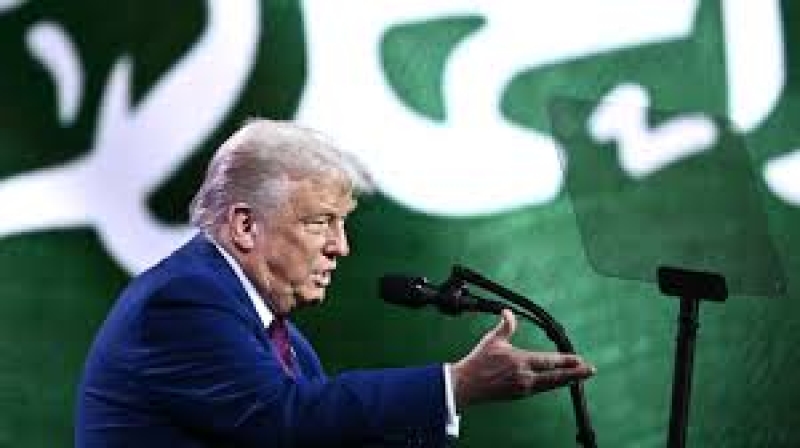- Israel Strikes Tehran with US Support Amid Nuclear Tensions |
- India Sees 9% Drop in Foreign Tourists as Bangladesh Visits Plunge |
- Dhaka Urges Restraint in Pakistan-Afghan War |
- Guterres Urges Action on Safe Migration Pact |
- OpenAI Raises $110B in Amazon-Led Funding |
Trump to Meet Syrian Leader Ahead of Qatar Visit

US President Donald Trump is set to meet Syrian President Ahmad al-Sharaa on Wednesday, marking a controversial but symbolic moment during his ongoing Middle East trip. The meeting, which precedes Trump’s visit to Qatar, underscores shifting regional dynamics and Washington’s evolving approach to Syria.
Al-Sharaa, a former insurgent commander and ex-detainee of U.S. forces in Iraq, assumed Syria’s presidency in January after his group, Hayat Tahrir al-Sham (HTS), ousted the Assad regime in a surprise offensive that ended decades of family rule.
According to the White House, Trump’s meeting with al-Sharaa will be brief and was arranged at the urging of Saudi Crown Prince Mohammed bin Salman and Turkish President Recep Tayyip Erdogan. Trump also announced plans to lift longstanding U.S. sanctions imposed during Bashar al-Assad’s rule.
“There’s new leadership in Syria that we hope can bring stability and peace,” Trump said on Tuesday. “It’s time to give peace a chance.”
Al-Sharaa, previously known as Abu Mohammed al-Golani, was a prominent figure in al-Qaida’s Iraq operations before returning to Syria in 2011. He later led the Nusra Front, al-Qaida’s affiliate in Syria, which rebranded as HTS and claimed to cut ties with its parent organization. Despite his rebranding, al-Sharaa remains wanted in Iraq on terrorism-related charges, and the U.S. once offered a $10 million reward for his capture.
Following the meeting in Syria, Trump will participate in a Gulf Cooperation Council (GCC) summit alongside leaders from Bahrain, Kuwait, Oman, Qatar, Saudi Arabia, and the UAE. He is expected to travel to Doha afterward.
Qatar, under the leadership of Emir Sheikh Tamim bin Hamad Al Thani since 2013, wields significant influence through its energy wealth and global media ventures such as Al Jazeera. The Gulf nation has also been embroiled in several international controversies, including a recent U.S. settlement with defense contractor RTX, which paid nearly $1 billion in a bribery case linked to Qatari defense contracts. Qatar has denied any wrongdoing.
Though deeply rooted in Wahhabi conservatism, Qatar supported Islamist movements during the Arab Spring, including Egypt’s Muslim Brotherhood. This led to a years-long regional blockade by several Arab states, which was lifted shortly before President Joe Biden took office in 2021.
The country has also played a prominent role as a global mediator, hosting peace talks between the U.S. and the Taliban, as well as facilitating negotiations in the Israel-Hamas conflict. It is home to the Al-Udeid Air Base, the largest U.S. military installation in the region.
One source of controversy during Trump’s visit is Qatar’s offer of a luxury Boeing 747-8 aircraft to serve temporarily as Air Force One while replacements are under construction. Trump has welcomed the proposal, calling it a cost-saving move, but critics argue it raises ethical questions.
In a social media post Wednesday, Trump defended the deal: “It’s a gift from a nation we’ve defended for years. Why should taxpayers pay billions when Qatar is offering this for free?” He added that the aircraft would be transferred to his presidential library after his term and not used beyond his presidency.
Trump’s Mideast visit, combining diplomacy and deal-making, signals his continued engagement with regional power brokers and controversial figures—setting a tone that is as unconventional as it is strategic.

